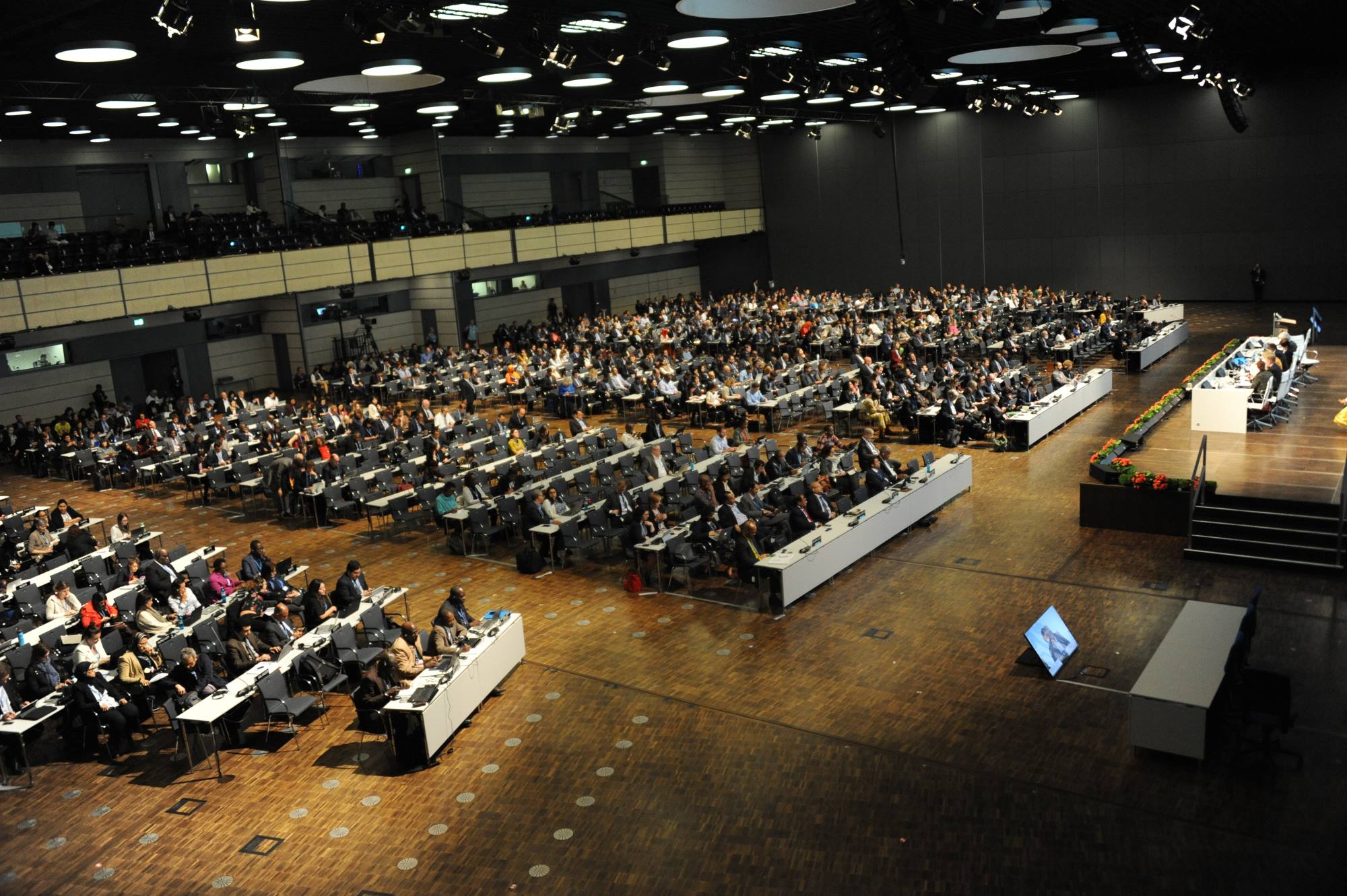Last week in Bonn, a small group of countries continued to oppose the inclusion of the IPCC Special Report on 1.5C, resulting in its exclusion from formal UN climate negotiations. A contentious move as the report, commissioned during the 2015 climate talks in Paris, has emerged as a point of reference for establishing pathways to combatting climate change.
The report’s main scientific contributions were to reveal the difference in impacts between a 1.5C and 2C increase in average temperatures this century; highlighting the huge benefits that keeping global warming below the former levels would entail. It also demonstrated that keeping below 1.5C is in fact still possible, although it will require rapid and decisive measures such as: decreasing global CO2 emissions by 45% from 2010 levels by 2030, increasing renewable energy provision to provide up to 85% of global electricity by 2050, phase out coal almost entirely, and reach global net-zero emissions by 2050.
Prof Jim Skea, who co-chairs the IPCC, when interviewed by the BBC, clearly outlined the advantages of the report: “First limiting warming to 1.5C brings a lot of benefits compared with limiting it to two degrees. It really reduces the impacts of climate change in very important ways [..] second is the unprecedented nature of the changes that are required if we are to limit warming to 1.5C – changes to energy systems, changes to the way we manage land, changes to the way we move around with transportation.”
The report issued an unsettling yet positive message, that brought solutions to the table whilst not shying away from emphasising how dire the climate situation actually is. By focusing on how individuals, politicians and economic actors can make a difference, and establishing a set of realistic and possible objectives, it has become a rallying cry for those wishing to implement the Paris Agreement and contribute to climate change mitigation measures in general.
However, the Report has also raised some concerned eyebrows. Not least of which those of oil-producing countries that, led by Saudi Arabia, the US, Kuwait and Russia, had objected to ”welcoming” the report at the Katowice COP24 meeting in Poland, citing “knowledge gaps” and “scientific gaps”. A move described by other nations as a way of discrediting climate science so as to protect vested interests in their fossil fuel industries.
As attrition over the 1.5C report spilled over from Poland and carried into the latest set of UN climate talks in Bonn, a big division began to form, with the Saudi Arabian led group refusing to engage in substantive discussions over how the report’s findings could be used to inform policies on increasing the pace and scale of decarbonisation.
In contrast, the Alliance of Small Island States (AOSIS) were particularly vocal in their support of the report and in attempts to have it formally welcomed into present and future negotiations. Lois Young from Belize, Chair of AOSIS, accused the objectors of denying climate science itself: “Disregarding or qualifying the best available science is tantamount to climate denialism. We must not permit even a whiff of denialism in the multilateral process. We must use the IPCC Special Report on 1.5 to operationalise the Paris Agreement.”
The final agreement obtained at the Bonn Conference’s closing plenary was an unpopular and watered down version that included references to the IPCCC report as “the best available science” whilst also precluding any formal inclusion of its findings in future UN negotiations. Effectively, terminating discussions on the report. A move that many have seen as an important defeat and negation of science itself in informing pathways towards a more sustainable future.
However, with two more IPCC reports due this year there is hope that, in the face of unrelenting and accurate scientific evidence, countries will not be able to oppose decarbonisation plans on the basis of “scientific knowledge gaps” for much longer. As the shirts being worn by negotiators at the conference clearly state: “climate science is not negotiable”.
Read the SB50 Agreed text.






